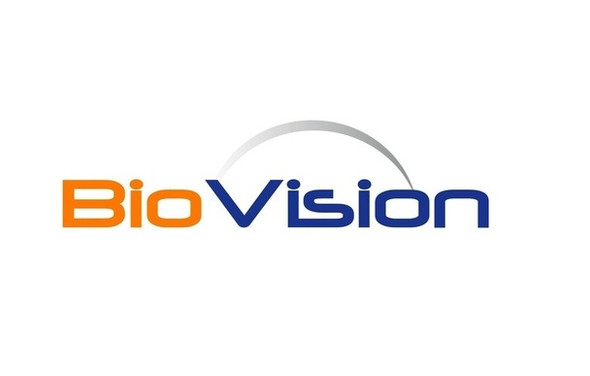Biovision
Human CellExp™ HDAC11, Human Recombinant, Active
- SKU:
- 26-P1267
- Availability:
- Usually Shipped in 5 Working Days
- Size:
- 50 μg
- Storage Temperature:
- -80°C
- Shipping Conditions:
- Dry Ice
- Shelf Life:
- 12 months
Description
Biomolecule/Target: HDAC11
Synonyms: HDAC11, HD11, Histone Deacetylase 11
Alternates names: HDAC11, HD11, Histone Deacetylase 11
Taglines: A member of the Class IV HDAC subfamily
Taglines: USA
Country of Animal Origin: USA
NCBI Gene ID #.: 79885
NCBI Gene Symbol: HDAC11
Gene Source: Human
Accession #: Q96DB2
Recombinant: Yes
Source: HEK293 cells
Purity by SDS-PAGE #: ≥80%
Assay: SEC
Purity: N/A
Assay #2: N/A
Endotoxin Level: N/A
Activity (Specifications/test method): Deacetylation activity was determined using a myristoylated substrate.
Biological activity: N/A
Results: N/A
Binding Capacity: N/A
Unit Definition: N/A
Molecular Weight: 84 kDa
Concentration: N/A
Appearance: Liquid
Physical form description: In 30 mM HEPES, 140 mM NaCl, 10 mM KCl, 3% glycerol, 0.25 mM TCEP, pH 7.6
Reconstitution Instructions: N/A
Background Information: HDAC11 is a 39kDa protein and belongs to the Histone Deacetylase Class IV subfamily. The enzyme is primarily localized in the nucleus and shows high expression in specific tissues like brain, heart, skeletal muscle and kidney. It is the newest member of the HDAC family and hence very little is known about its functional role. Initial studies identified HDAC11 as a negative regulator of IL-10 production in APC cells. A recent study shows that HDAC11 is the most efficient fatty acid deacetylase of the HDAC family with catalytic efficiencies towards dodecanoylated and myristoylated substrates exceeding 70,000 M-1 s -1. Increasing body of evidence indicate a possible involvement of HDAC11 in diverse pathophysiological processes including immunomodulation, cancer pathogenesis, cellular differentiation etc
Amino acid sequence: N/A
Handling: Thaw on ice, and aliquot into smaller working quantities to avoid multiple freeze/thaw cycles.
Usage: For Research Use Only! Not to be used in humans






